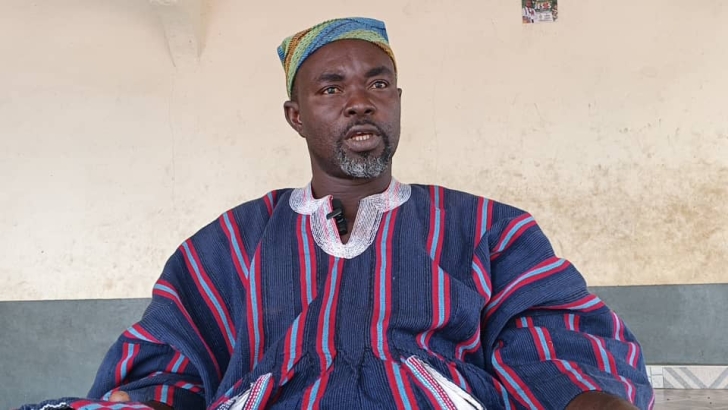
When Isaac (not his real name), a 22-year-old school dropout and mason in Saboba, first took tramadol, he believed it would give him the strength to work longer hours and earn more money. Instead, it left him battling dependency, poor health, and broken relationships. His story mirrors that of many young people across Ghana who are falling prey to the growing menace of substance abuse.
According to the Narcotics Control Commission (NACOC), about 10 per cent of Ghana’s youth aged 15–35 are involved in drug abuse, with tramadol emerging as one of the most misused substances, particularly in the northern regions.
It is against this worrying backdrop that the Paramount Chief of the Saboba Traditional Area, Ubor Bowan Mateer John Sakojim IV, has sounded a stern warning to the youth, urging them to avoid drugs and instead embrace productive ventures such as farming. He stressed that drug abuse threatens not just individual lives but the future of the community as a whole.
“Drugs do not ensure a healthy life,” he cautioned in an interview with Graphic Online’s Simon Unyan. “The youth are the future of every society, a nation, and a family. Indulging in drugs will only destroy your future and life. Saboba needs you, the nation needs you, and your family needs you. You are an asset, not a liability.”
A national concern with local impact
Tramadol use in Ghana has surged over the past five years, often sold illegally for as little as GH¢5 to GH¢10 in drug stores and on the black market. Despite the passage of Executive Instrument (EI) 168, which outlawed the sale of high-dose 250 mg tablets, the drug continues to circulate widely.
Reports show that commercial motor riders, drivers, students, and unemployed youth are among the most vulnerable groups. Many misuse tramadol in the hope of boosting energy, easing pain, or enhancing sexual performance—often unaware of the severe health risks and social consequences.
In Saboba, where unemployment, poverty, and school dropout rates remain high, the problem is especially concerning. While acknowledging the difficulties of joblessness, Ubor Mateer urged the youth not to use it as an excuse for substance abuse.
“It is painful to finish school and remain unemployed. But being idle does not mean you should waste your life on drugs. Use your education to create something meaningful. Farming is one of the best ways to start,” he advised.
Farming as a path to empowerment
The chief stressed that agriculture remains the most practical and rewarding source of livelihood in Saboba, with arable land available in almost every household.
“Land should not be a barrier here. Every family owns land. Our young people must eschew laziness, go to the farms, and work hard to sustain themselves. The government cannot employ everyone,” he said.
He also encouraged those with technical and vocational training to adopt innovative approaches to self-employment, and to save and reinvest their earnings to build sustainable futures.
Community response
Echoing the chief’s concerns, Mr Jalulah Jagri Maurice, Assemblyman for the Saboba West Electoral Area and President of the Concerned Youth of Saboba, confirmed that tramadol abuse is creeping into the community.
“We have intel that some people are secretly selling tramadol in Saboba. We are tracking them, and anyone caught will be dealt with appropriately. This menace must be stopped before it destroys our youth,” he told Graphic Online.
Mr Maurice also appealed for stronger government and NGO support to create sustainable livelihoods, and for public education and awareness campaigns. He further highlighted the need for irrigation facilities to make year-round farming possible in the district.
A shared responsibility
Both traditional and youth leaders emphasised that safeguarding Saboba’s future requires collective action. They called for chiefs, policymakers, law enforcement agencies, civil society groups, and the wider community to work together to protect young people from destructive habits.
“For the next 50 to 100 years, if Saboba grows, it will depend on the type of youth we are raising today. Education, innovation, and farming must replace drugs and idleness,” Ubor Mateer declared.
As Ghana confronts the wider challenges of unemployment and substance abuse, Saboba’s message is clear: the nation’s future lies not in pills and powders, but in ploughs, skills, and innovation.



